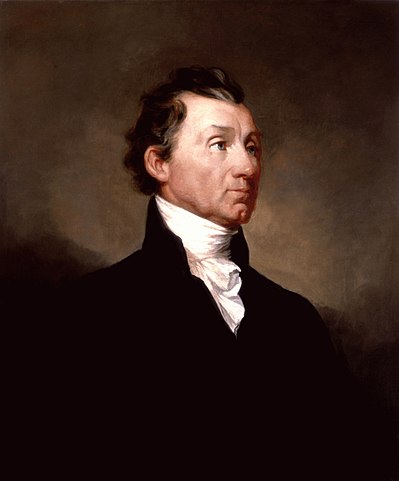James Monroe was the fifth President of the United States, serving from 1817 to 1825. His presidency was marked by several notable events and accomplishments. Here are key aspects of his life and presidency:
1. Early Life and Career:
- James Monroe was born on April 28, 1758, in Westmoreland County, Virginia. He attended the College of William and Mary and later served as an officer in the Continental Army during the American Revolution.

2. Diplomat and Minister to France:
- Monroe’s early political career included serving as a U.S. Senator and as the U.S. Minister to France during a critical period. He played a role in negotiating the Louisiana Purchase.
3. Presidency:
- Monroe was elected as the fifth President of the United States in 1816 and was reelected in 1820. His presidency is often referred to as the “Era of Good Feelings” because of the relative political harmony during this time.
4. Monroe Doctrine:
- One of Monroe’s most significant contributions was the Monroe Doctrine, which he articulated in his annual message to Congress in 1823. This policy asserted that the United States would consider any attempt by European powers to colonize or interfere in the affairs of independent nations in the Western Hemisphere as a threat to the U.S. It is a foundational principle of American foreign policy.
5. Missouri Compromise:
- During Monroe’s presidency, the Missouri Compromise was enacted, allowing Missouri to enter the Union as a slave state while Maine entered as a free state. It also established a line, prohibiting slavery north of the 36°30′ parallel within the Louisiana Territory.
6. Florida Acquisition:
- Monroe’s administration negotiated the acquisition of Florida from Spain in the Adams-Onís Treaty of 1819, which resolved territorial disputes between the two nations.
7. Economic Policies:
- Monroe presided over a period of economic growth and development in the United States. He was a proponent of protective tariffs and internal improvements to boost the country’s infrastructure.
8. Transition of Florida:
- During his presidency, Florida was ceded to the United States, and he took steps to assert U.S. control over the territory.
9. Leadership Style:
- Monroe is often described as a pragmatic and conciliatory leader who sought to promote national unity and reduce partisan tensions.
10. Founding Father and Legacy:
James Monroe is considered one of the Founding Fathers of the United States and was one of the last to serve as President in the era of those who participated in the American Revolution. He is known for his contributions to the nation’s early foreign policy and territorial expansion.
James Monroe’s presidency left a mark on American history, particularly through the Monroe Doctrine, which continues to shape U.S. foreign policy. His commitment to promoting national unity and his involvement in major territorial acquisitions helped define the nation’s growth during the early 19th century.












